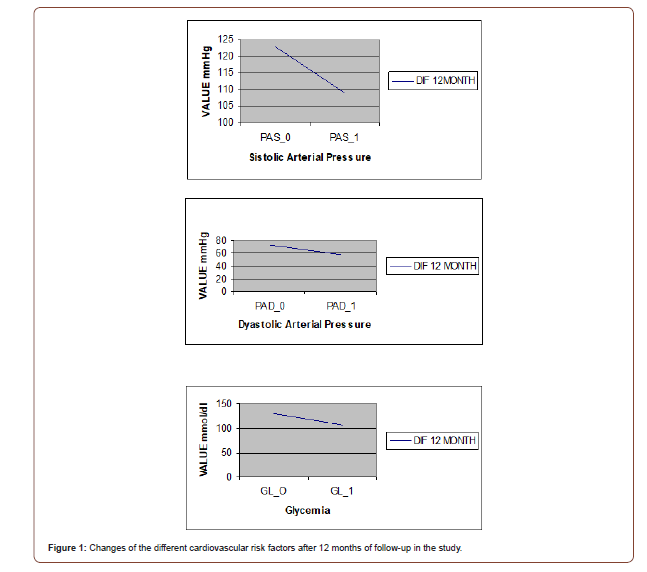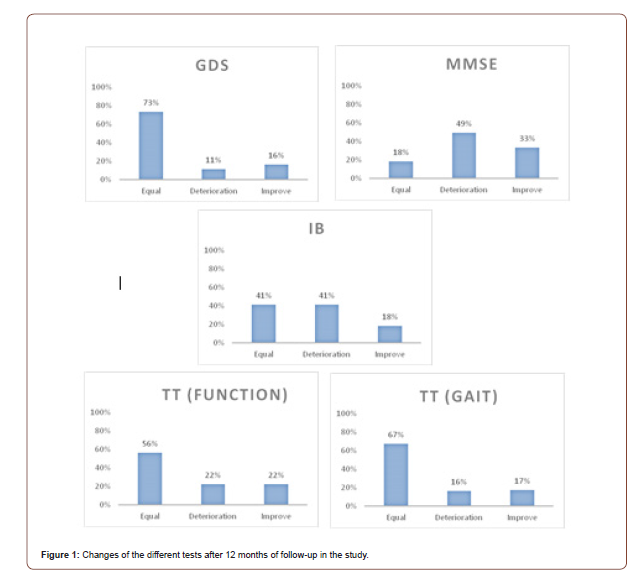Authored by Irene Roth*,
Abstract
Alzheimer’s disease (AD) is considered one of the main neurodegenerative diseases with the highest prevalence today Zucchella C [1]. As a significant fact, it is important to highlight that, of 100% of people suffering from some type of dementia, 70% are affected by Haaksma ML [2], Li M [3], Zucchella C [1]. 20% of these are diagnosed two years after the manifestation of the first symptoms, causing in many cases, a narrow margin of action, when the disease is in an advanced state of evolution Abraha I [4]. This disease mainly represents one of the main health problems in the elderly population Duan Y [5], Zhao J [6]. Ageing is a major risk factor for chronic disease Jeffrey S [7]. On the other hand, nutrition is important for optimal maintenance of cognition and modifiable risk factors for dementia, to delays cognitive decline Valls-Pedret C [8] such as diabetes, hypertension and obesity Salas-Salvadó J [9]. In different studies it has been observed the beneficial association of the Mediterranean diet (Med- Diet and cognitive function (CF) Valls-Pedret C [8], Mc Grattan AM [10]. Where the Med-Diet it is characterised by high intake of vegetables and fruits, legumes, nuts and whole grains, low intake of red and processed meat and moderate intake of poultry met, fish and wine, and the fat use it is olive oil Estruch R [11].
The aim of this study was to evaluate on elderly population with AD the benefits of high adherence Med-Diet and the association with reduced risk in the progression of AD.
Keywords: Dementia; Med-Diet; Neurodegenerative diseases; Elderly population; Cognitive function.
Introduction
This study was observational in 82 elderly people with AD between 65-95 years of age, who following Med-Diet in a Balearic attention center of memory disorder for 12 months (Table1). Compliance was measured by eating (breakfast and lunch) in the same centre and the same menu, cooking methods should be also considered. The cardiovascular risks factors and anthropometrics measures were analyzed. On the other hand, was evaluated the physical-cognitive state by Barthel index, mini-mental state (MMSE), Tinetti test and minimum basic data of cognition level.
Results
After 12 months following higher adherence to a Med-Diet, we observed a significantly decreased in high hypertension, systolic and diastolic pressure (P=0.006; P=0.001, respectively) and glycaemia (P=0.05) (Figure1). On the other hand, the anthropometric measurements did not change. But nevertheless, are not showed significant differences in the evaluation of the physical-cognitive state (Figure2).
Table 1:Baseline characteristics of the 82 subjects included in this study.



Discussion
In elderly population with AD observed a beneficial association between Med-Diet and CF and influence positively in chronic inflammatory diseases that has been implicate in the pathogenesis of dementia Mc Grattan AM [10] and improved CF Valls-Pedret C [8].
Diets rich in anti-inflammatory components, and influence neuroinflammatory processes leading to neurodegeneration McGrattan AM [10]. The possible mechanism that may act on these chronic inflammatory diseases and the positive effects of the Med- Diet on CF are by decreasing vascular risk factors and the effect of a long-term low–glycemic index diet on CF in adults Peterson SD [12]. In a meta-analysis, the adherence of Med-Diet was associated with 13% reduction in the incidence of neurodegenerative diseases Sofi F [13]. In other study, Med-Diet exert effects on cognitive health, that are relationships with reduced risk of hypertension, glycemia Estruch R [11].
The association between Med-Diet and reduced risk of cognitive decline it is observed in cohort studies with long follow-up periods, but in short follow-up periods this association do not observed Lourida I [14].
Moreover, the use of different CF test makes the findings difficult to compare. Majority of studies used the MMSE. Since this test assesses both global cognitive abilities and episodic memory. Thus, it is one of the best methods to determine pathological cognitive aging. Along these lines, it is a good method to control Citation: Irene Roth, Jesús-Tomás Monge-Moreno, Margarita Ferrer. Benefits to Follow Mediterranean Diet on The Cardiovascular Risk Factors Associated with Dementia in Balearic People. Glob J Aging Geriatr Res. 2(1): 2021. GJAGR.MS.ID.000509. Page 4 of 4 the progression of dementia, which in turn, is sensitive to cognitive changes in a disease population.
Conclusion
High adherence Med-Diet could offer potential for reducing the risk of progression from AD disease and improve the cardiovascular risks factors that are associated with the risk of dementia.
To read more about this article...Open access Journal of Aging & Geriatric Research
Please follow the URL to access more information about this article
To know more about our Journals...Iris Publishers





No comments:
Post a Comment